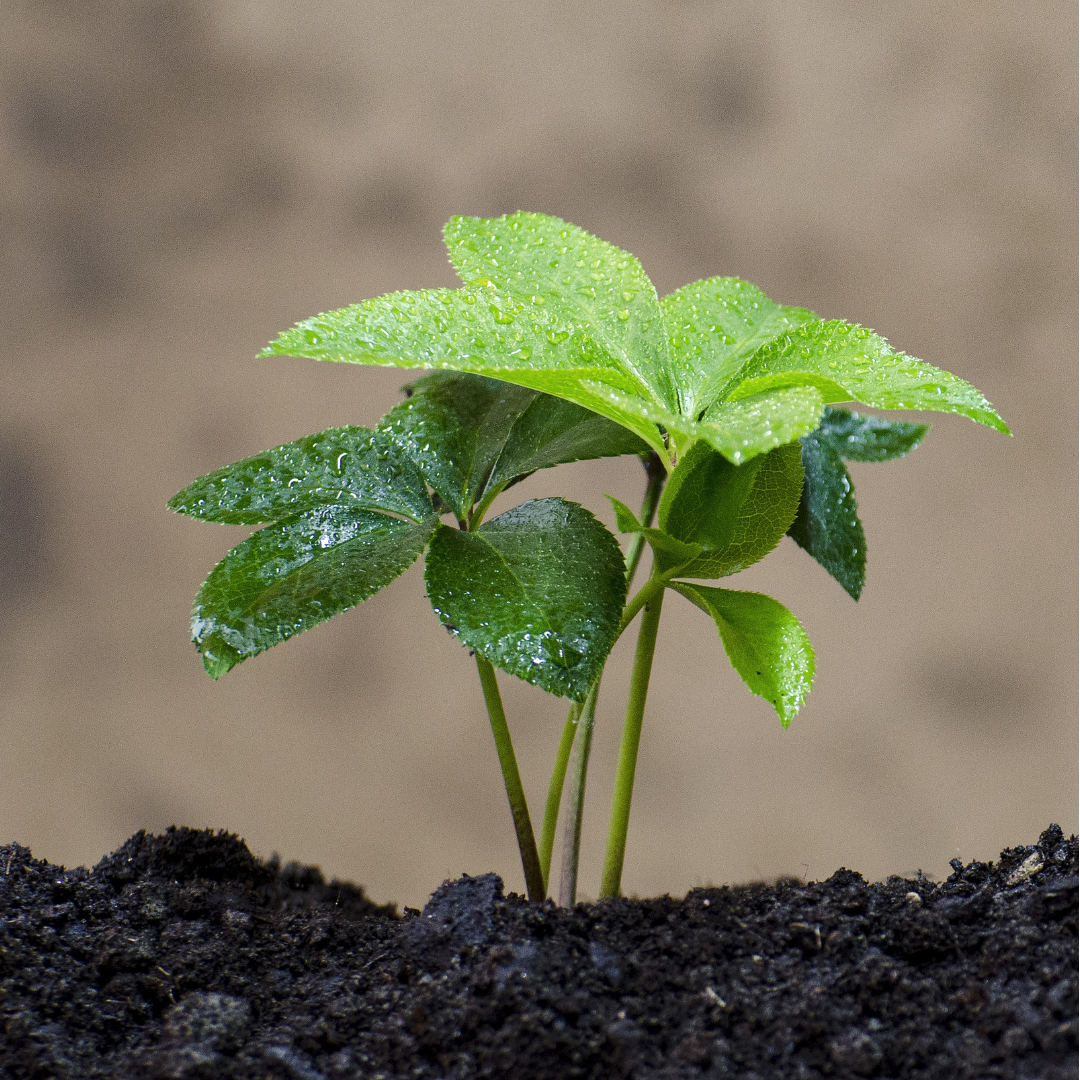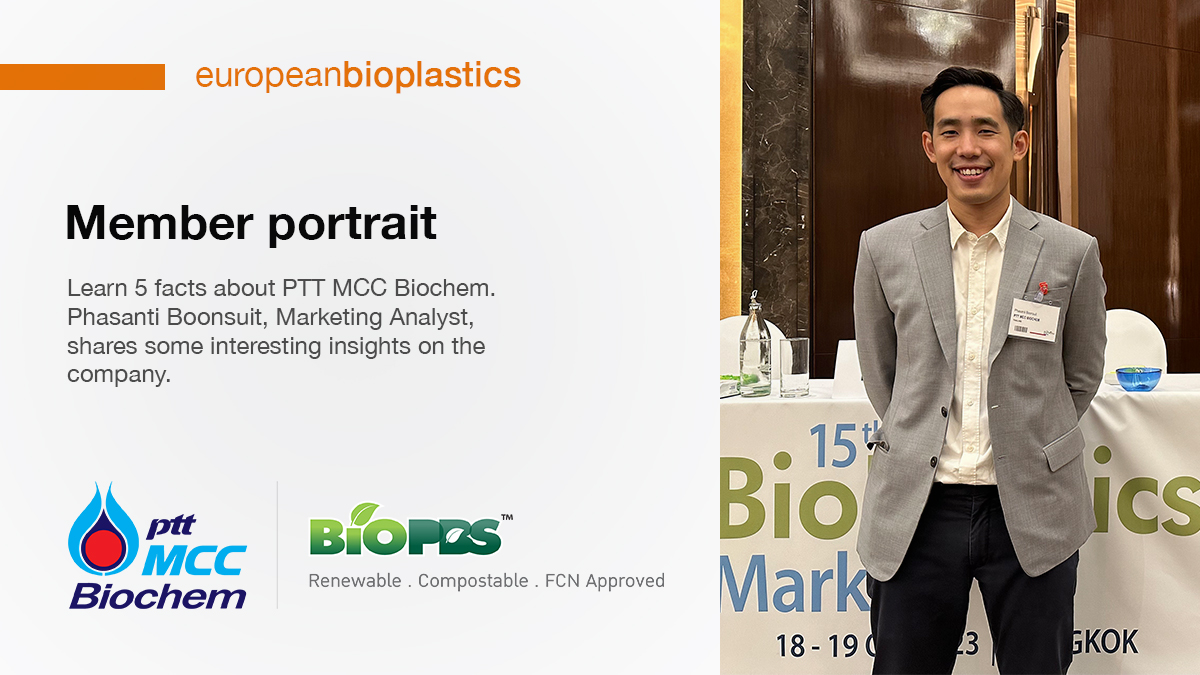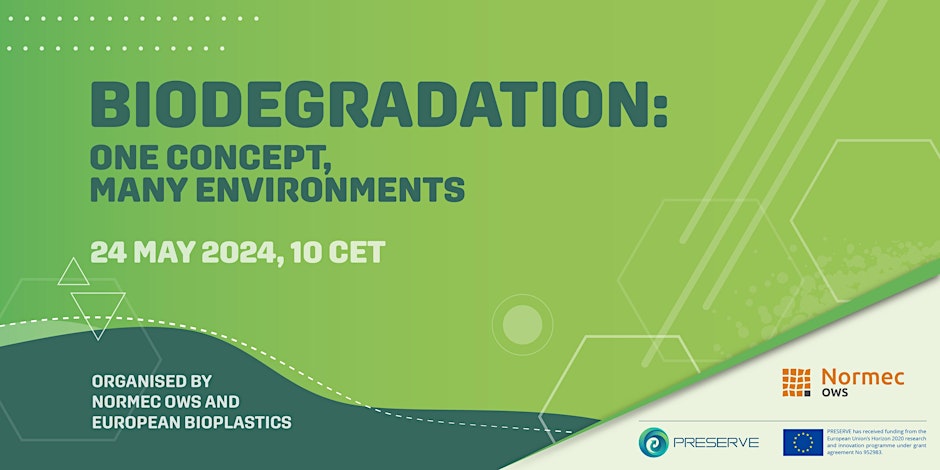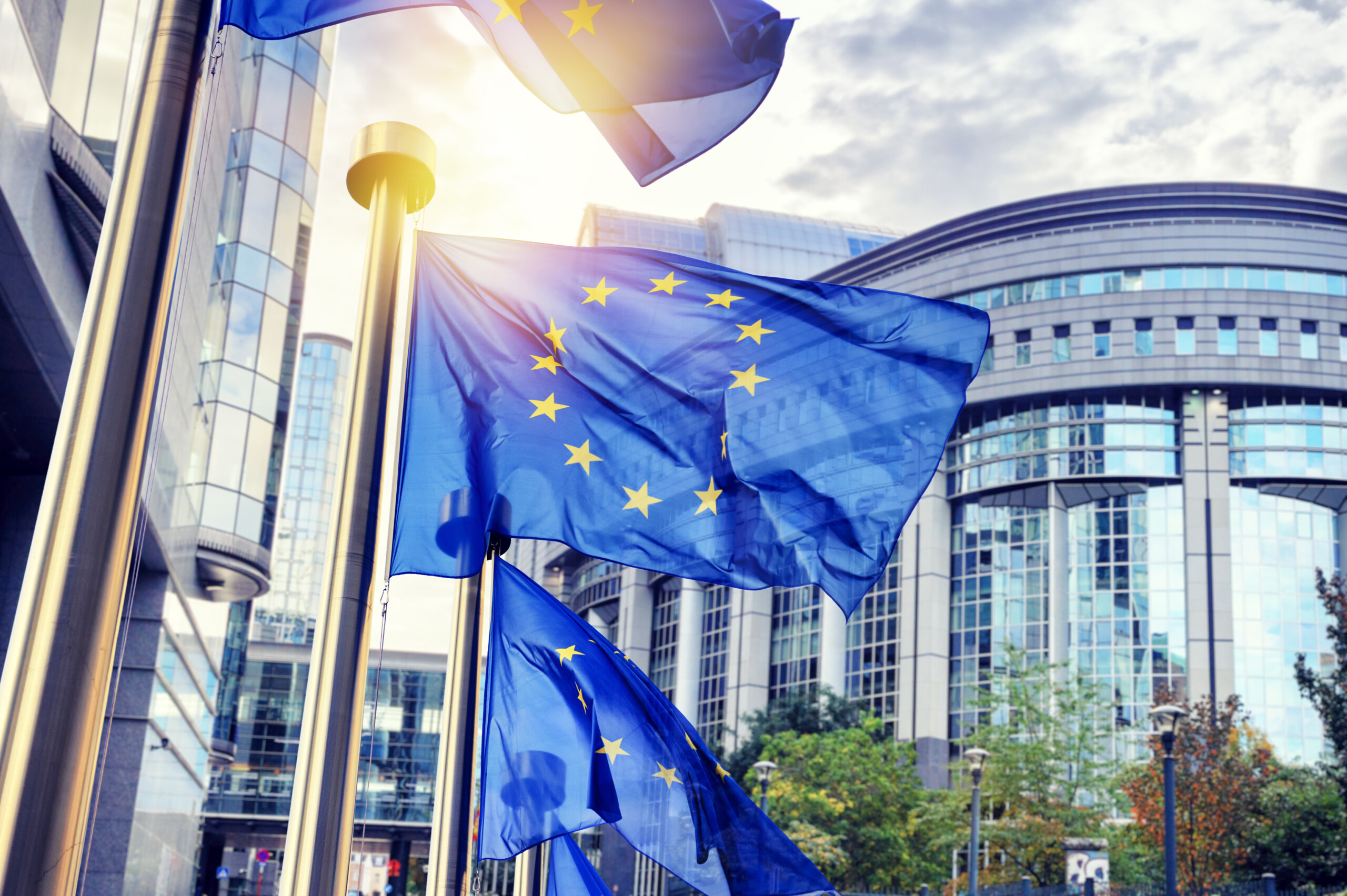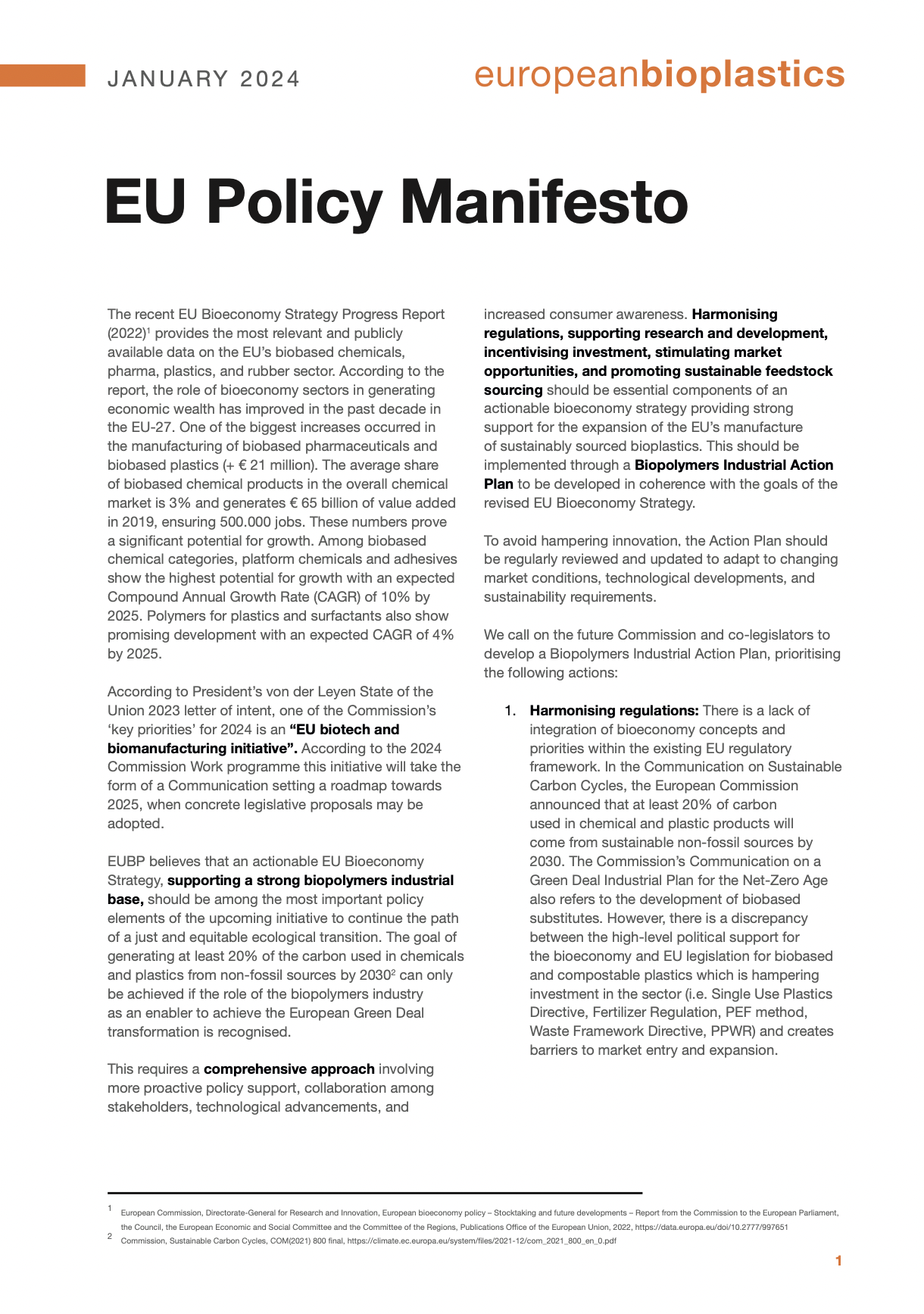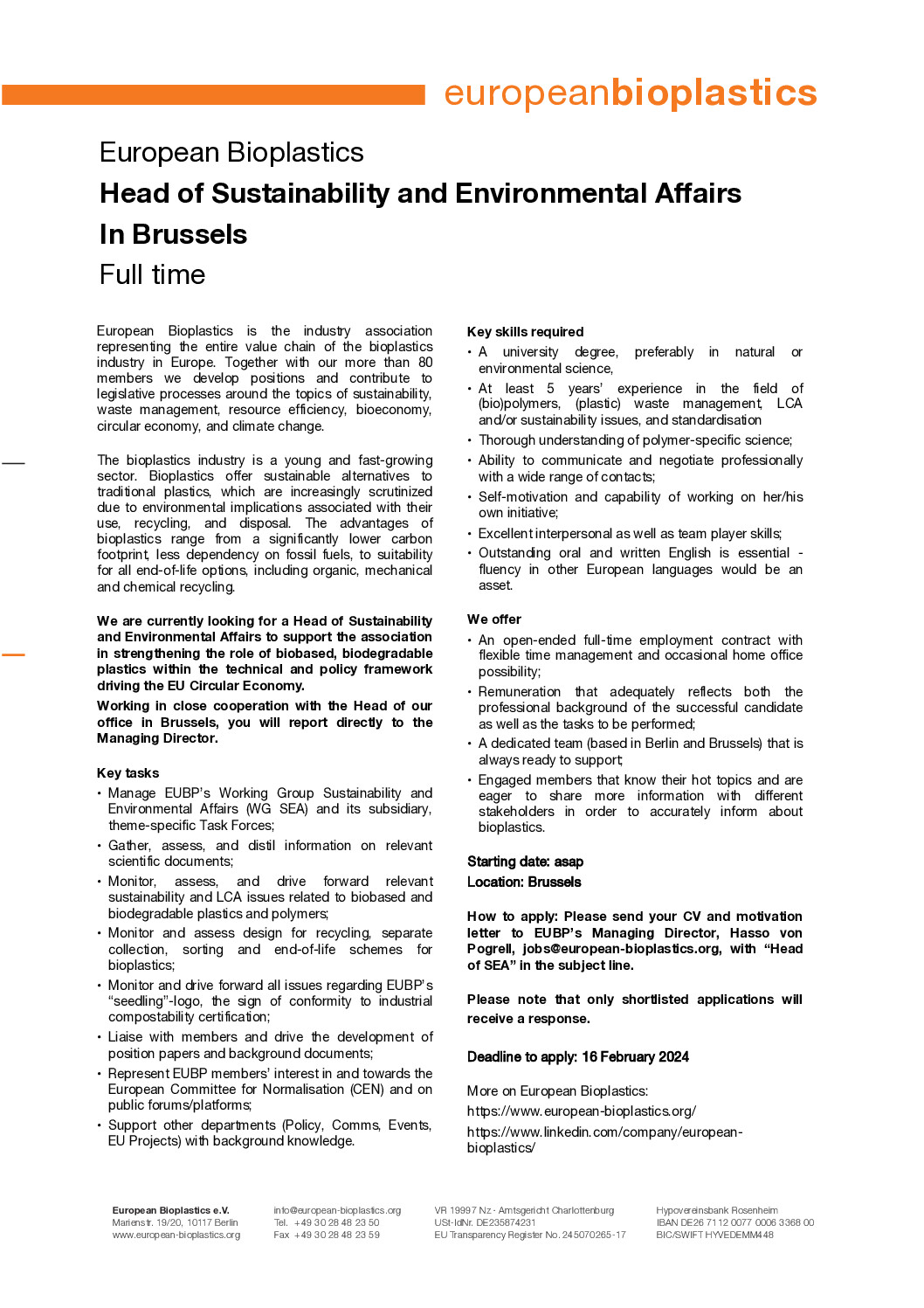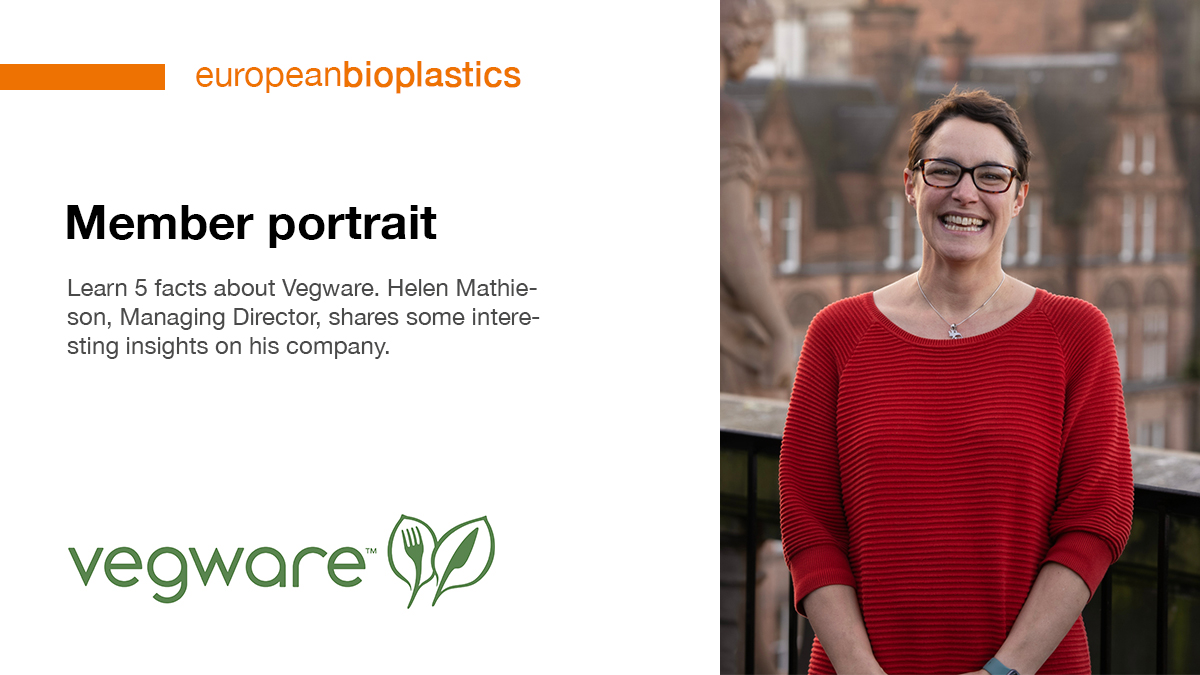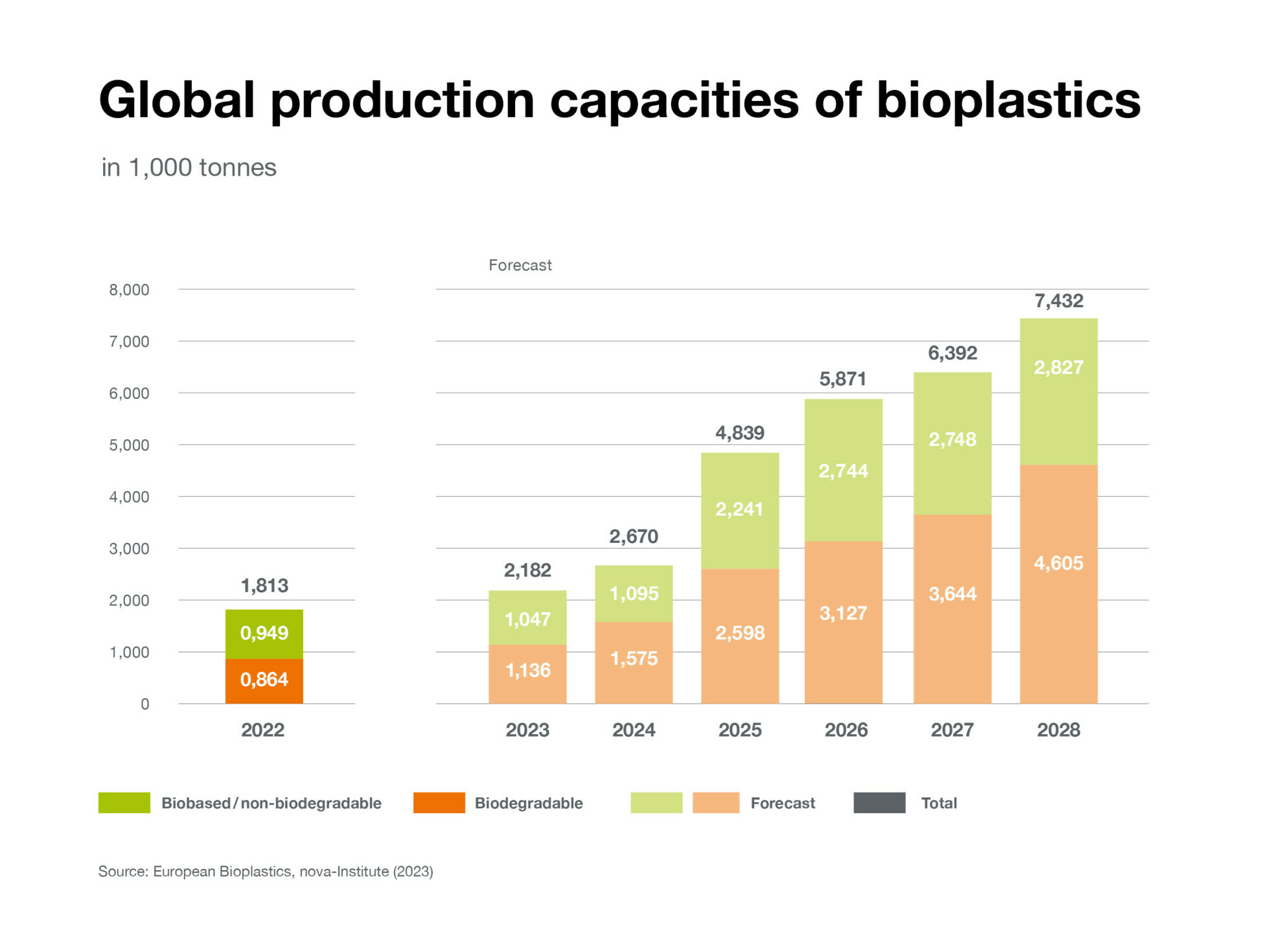EUBP publishes positions on Anaerobic Digestion of certified compostable products
European Bioplastics believes that certified compostable plastics are essential in achieving a circular economy and calls for the recognition of their important role within municipal biowaste management: They are designed for organic recycling. They help to safeguard separate waste streams. They help to increase the collection of biowaste. They help to ensure the quality [...]
